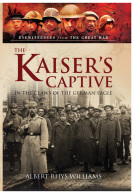Retreat and Retribution in Afghanistan 1842 (Paperback)
Two Journals of the First Afghan War
Imprint: Pen & Sword Military
Pages: 208
Illustrations: 20 mono illustrations
ISBN: 9781399019903
Published: 7th October 2022
(click here for international delivery rates)
Need a currency converter? Check XE.com for live rates
| Other formats available | Price |
|---|---|
| Retreat and Retribution in Afghanistan… Hardback Add to Basket | £19.99 |
| Retreat and Retribution in Afghanistan… ePub (5.2 MB) Add to Basket | £6.99 |
The blow to British pride and confidence caused by the crushing defeat of their army in Afghanistan during the winter of 1841/2 compares in its impact to the disaster in New York on 11 September 2001. The British had replaced a popular and effective monarch with a weak one in the mistaken belief that he would keep the Russians at bay. Two years later, nearly all the British and Indian soldiers in the region were killed in a popular uprising.
Margaret Kekewich's perceptive new study of the conflict describes the British defeat, their re-occupation of Afghanistan in the spring of 1842, then their final withdrawal at the end of the year. Her account, which is based on the graphic diaries written by two British eyewitnesses, gives a fascinating insight into the conflict in Afghanistan 150 years ago.
The story is told by, first, Lady Sale who together with over 100 women, children and soldiers was captured and imprisoned by the Afghans. The second account comes from the Reverend Allen, a young chaplain to the army that invaded Afghanistan in April 1842 to avenge British humiliation and rescue the prisoners. Both these eyewitnesses deplored the follies that had led to war and defeat and also the suffering that was inflicted on many innocent Afghans.
At a time when British forces are deeply engaged in another war in Afghanistan, Margaret Kekewich offers a balanced and thought-provoking new perspective on a previous conflict in the region.
Kekewich has taken an unusual approach to this material. Instead of printing the two diaries, she has chosen to write an account of the war as seen by the two diarists, but in her own words. This allows her to fill in the gaps in our diarists' knowledge and there are plenty of extracts from both diaries to give us a feel for the originals. The result is an unusual but interesting look at two parts of the First Afghan War, a conflict that feels more relevant now than for many years.
History of War
This book explains how we failed in the 1940's and introduces us again to the valuable records kept by two diarists of the time.
The Bulletin
This book aims to outline the events surrounding the disastrous defeat of British forces in Afghanistan during the winter of 1841/1842. It traces the ensuing punitive campaign which was launched to recover British captives, and the final withdrawal of British forces back to India.
Military Times, Jonathan Eaton
This book is well worth reading for eye witness accounts alone. It should be read by anyone with an interest in the military history of Afghanistan.
History has a habit of repeating itself, particularly when it comes to military campaigns. The current morass in which Coalition forces are immersed in Afghanistan has inevitably encouraged a re-examination of past Afghan campaigns. This book aims to outline the events surrounding the disastrous defeat of British forces in Afghanistan during the winter of 1841-1842. The British defeat and ensuing campaign is described through two contemporary accounts - the journal entries of Lady Florentia Sale and the diary of the Rev. Isaac Allen, the latter being curiously neglected by modern historians. Despite radically different experiences, both accounts express similar opinions about the flaws and implications of the British conduct of war. This book is well worth reading for the eyewitness accounts alone. It should be read by anyone with an interest in the military history of Afghanistan.
Military Times - May 2011
In a time when our forces are heavily involved in a much debated ongoing conflict in Afghanistan itself ,retired Open University history lecturer Dr Margaret Kekewich provides an enthralling account of the impact of the British army's defeat in Afghanistan during the winter of 1841/42. Her perceptive study of the conflict not only investigates the humiliating British defeat, but also the re-occupation the following spring and what led to the final withdrawal at the end of the year. Primarily based on the graphic diaries of two British eye-witnesses, first that of Lady Sale who was captured and imprisoned by the Afghans and the second,by Reverend Allen, a young chaplain to the British army that invaded in 1842 to rescue the prisoners. This allows Kekewich to draw both together into an insightful narrative which provides both a though provoking and emotional perspective on the conflict. It is contextually fascinating as she draws many parallels with the present day war in the region whilst considering the huge historical legacy of the conflict.
Jayne (customer review)
About Margaret Kekewich
Dr Margaret Kekewich is a retired Open University history lecturer who has written on a wide range of subjects from the late middle ages to the nineteenth century. Among her recent books are Britain, France and the Empire 1350-1500 (with Susan Rose) and The Good King: René of Anjou and Fifteenth-Century Europe.















